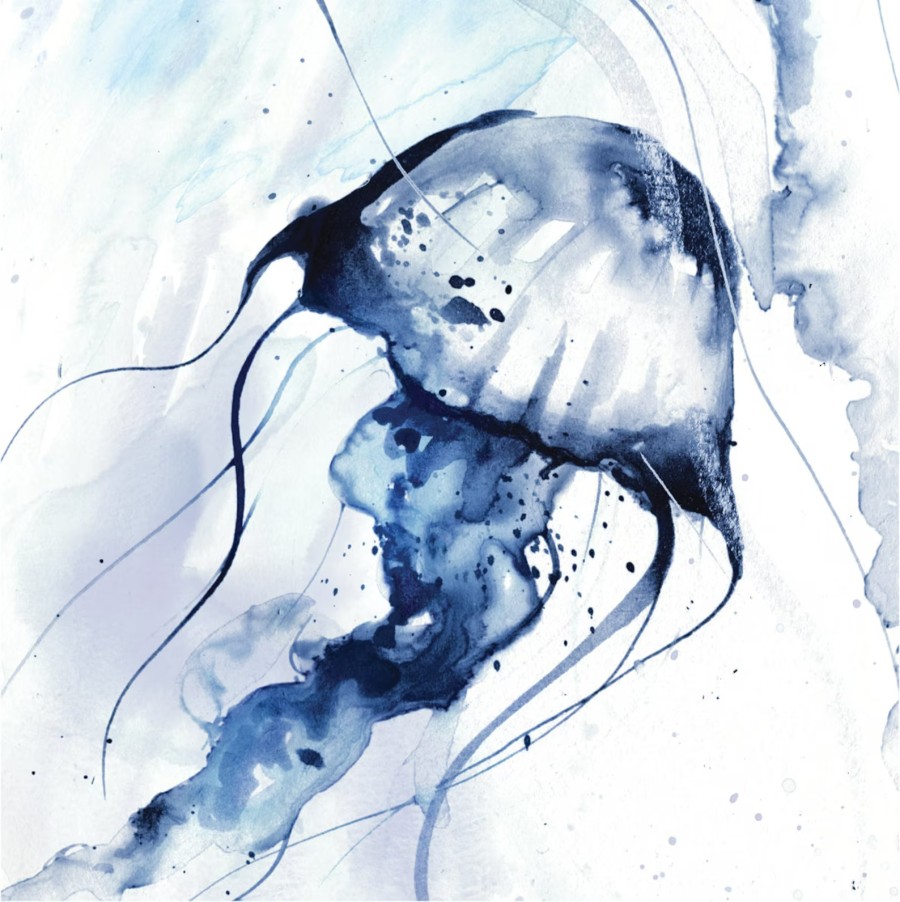
Mostly found in the northwest (and Wales), England’s coast has several types of jellyfish, but it’s important not to let yourself (or dogs) get close, as they can sting (even if dead). Jellyfish are good indicators of climate change temperatures in oceans, and also are important in food chains. Of thousands of species worldwide, we only have a few.
- Moon jellyfish are the most common, often washed ashore. They are the size of a dinner plate with four circles within a translucent bell body, andshort tentacles. They float just below the water.
- Compass jellyfish are so-called due to their bell shape, with frilled arms below and yellow-white translucent bodies.
- Barrel jellyfish are large with mushroom-shaped bells and frilly tentacles and violet fringes, often washed ashore in summer.
- Lion’s mane jellyfish have long flowing tentacles, akin to a lion’s mane with brown-red bodies and thick frills.
- Blue jellyfish are similar, with stinging tentacles under their dome-shaped bell (of various colours).
- Mauve stinger jellyfish have long thin tentacles and orange-brown warts, they are pretty rare.
staying safe around jellyfish
Dogs are curious, but even dead jellyfish can sting, and lion’s mane jellyfish and Portuguese man o’war in particular can be dangerous. If your dog is stung, rinse area with sea water, remove tentacles/barbs and seek immediate vet advice.
Follow beach signs, wear waterproof shoes/sandals in shallow water or rocky areas and scuff/stamp your feet to let sea creatures you’re approaching. Consider a wetsuit when swimming in spring/summer and don’t touch creatures that sting!
Jellyfish can sting (even when dead). In England, stings can be painful but are rarely serious, unless stung by sea urchins, stingrays, weever fish and Portugese man-of-war. If so, leave water to warn others and lifeguard, then rinse with seawater. Remove spines with tweezers (or edge of a bank card), soakin warm water for at least 30 minutes (or use hot towels/flannels) and take painkillers. Do not cover/close wound.
For severe pain (or if stung on the face/genitals or from a stingray, visit minor injuries. For breathing difficulty, chest pain, vomiting, loss of consciousness, seizures or severe swelling/bleeding, call 999. Report jellyfish stings.
should you rescue beached jellyfish?
Jellyfish are over 90% water, so are already dying when washed ashore. For this reason, returning them to sea is likely just going to prolong the inevitable, or they will beach again. The sad but kindest thing to do is likely just leave them.
Unlike some other creatures (that wash ashore due to climate change), jellyfish usually wash up due to windy weather, that simply blows them off-course. This is because they have no fins or tails, so can’t propel themselves back to sea.





